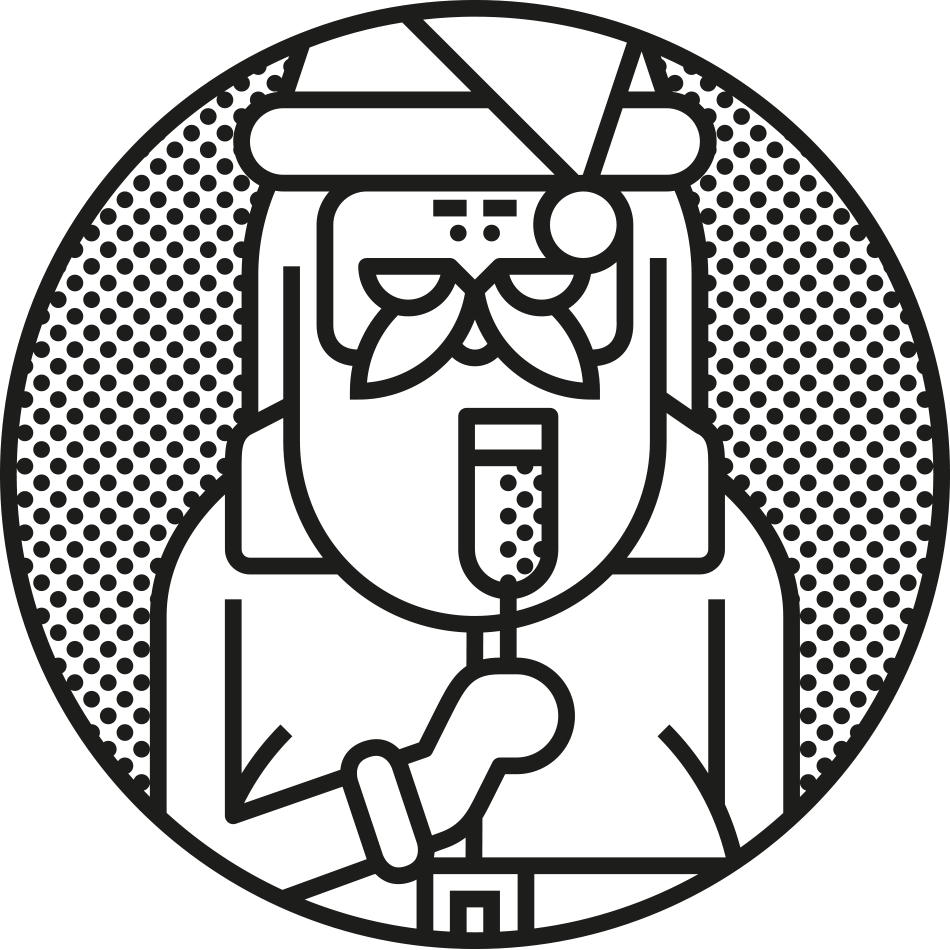When you find yourselves somewhere between Gotham City Police HQ and Blade Runner’s Leon’s Hotel chatting to a Westworld sexbot you know that it’s been an interesting – and surprising – year.
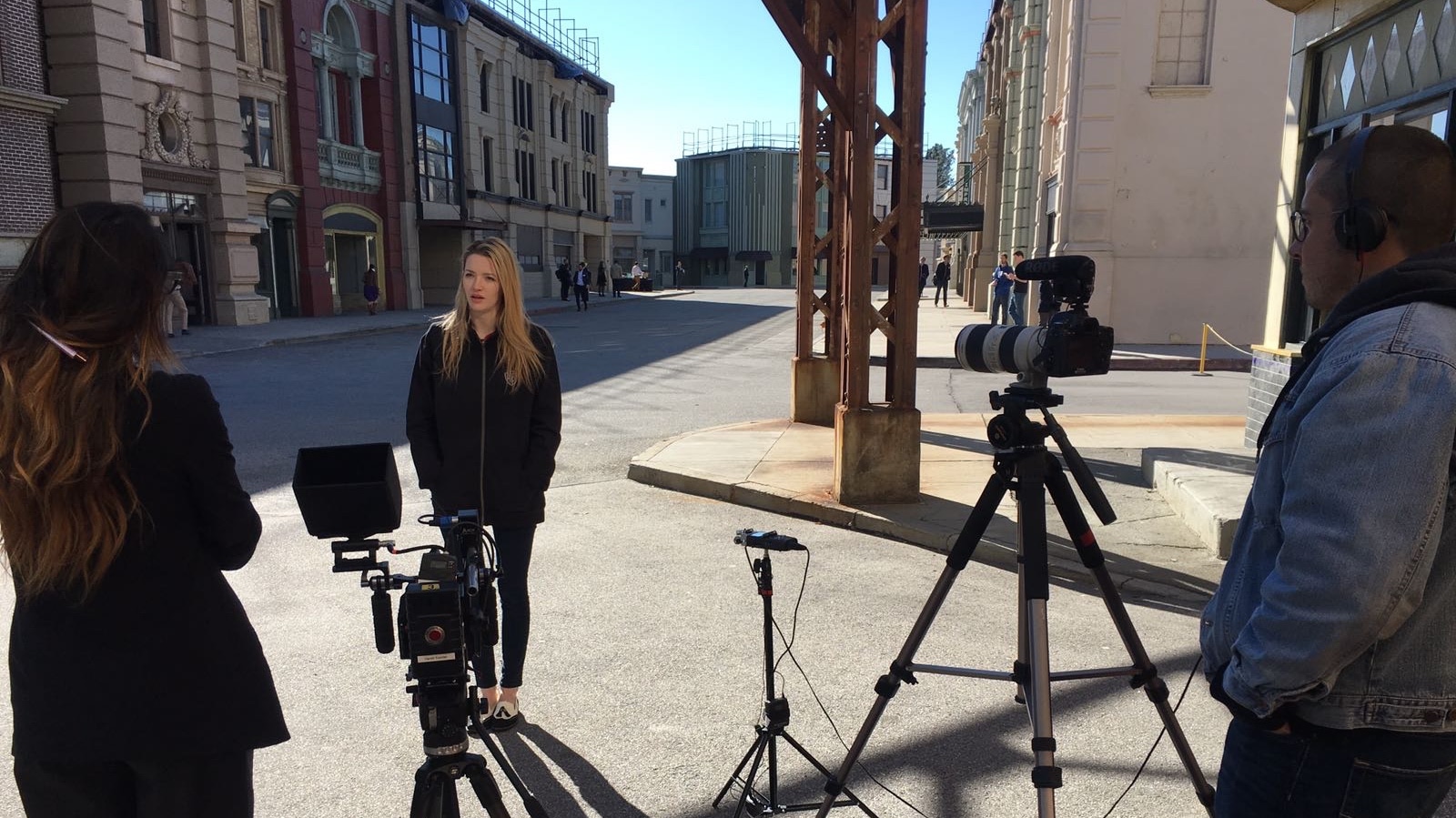
Her name is Talulah Riley
OK, it’s been relentless too, but there are so many reasons to feel hopeful. From Cameroon to Patagonia, 2017 has seen your projects make the world brighter.
Thanks to you, this year we entered the Matrix (prepare to have your mind blown), chewed the fat with an ethical Jedi chef, learned to speak carbon, mapped magic in Africa, explored being vegan, embraced the joy of text, showed you how to be useful and deliberated Mars and Musk with “the man whose job it is to constantly imagine the total collapse of humanity in order to save it”.
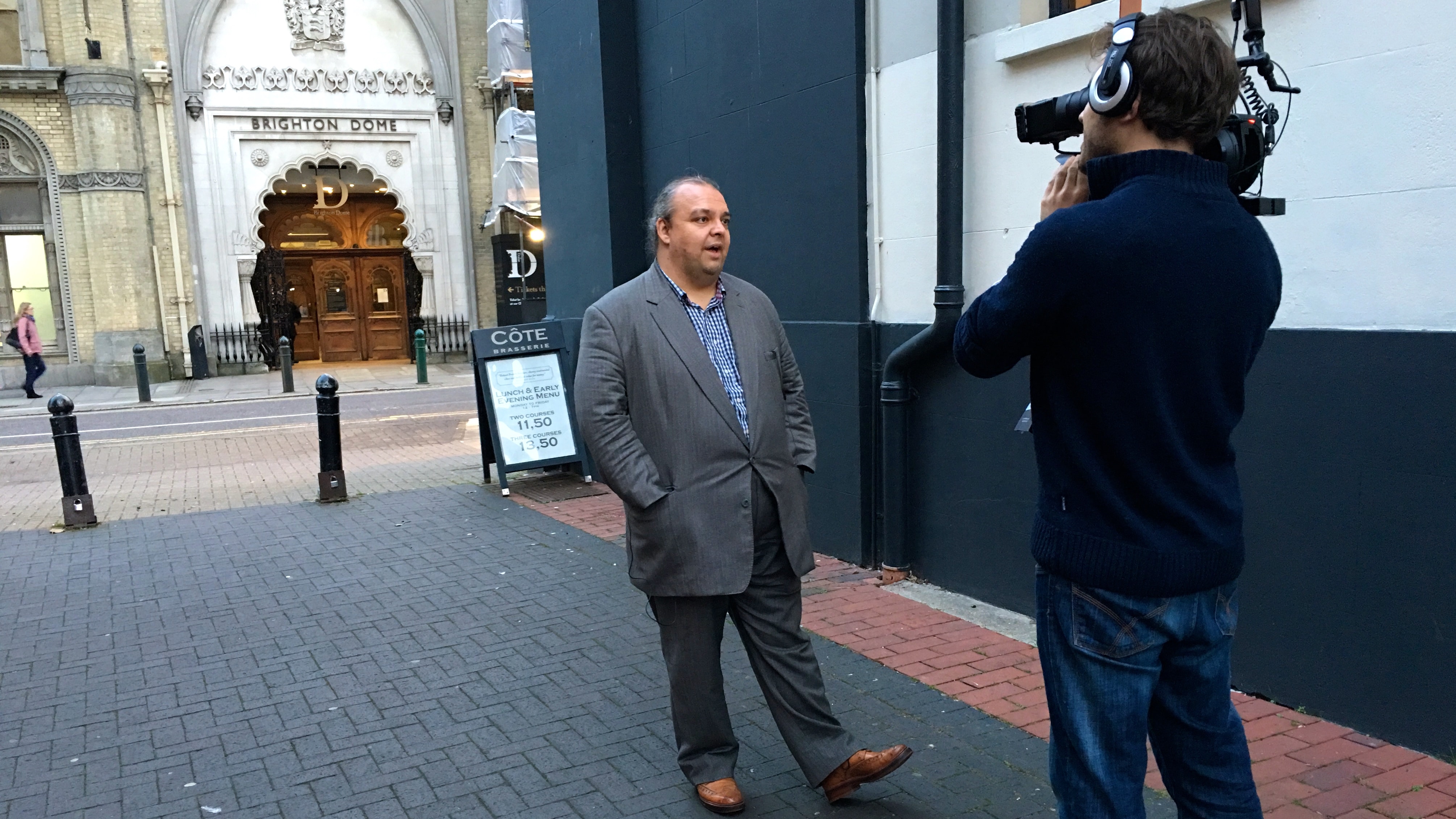
Vinay Gupta: “We’ll be on Mars before I’ve paid my mortgage”
We’ve covered your events from the wondrous Meaning Conference to an improbable event at Warner Brothers Studios in which scientists, academics and astrophysicists came together with sci-fi scriptwriters, Hollywood bigwigs and policymakers to imagine “what if?” (Videos coming soon.)
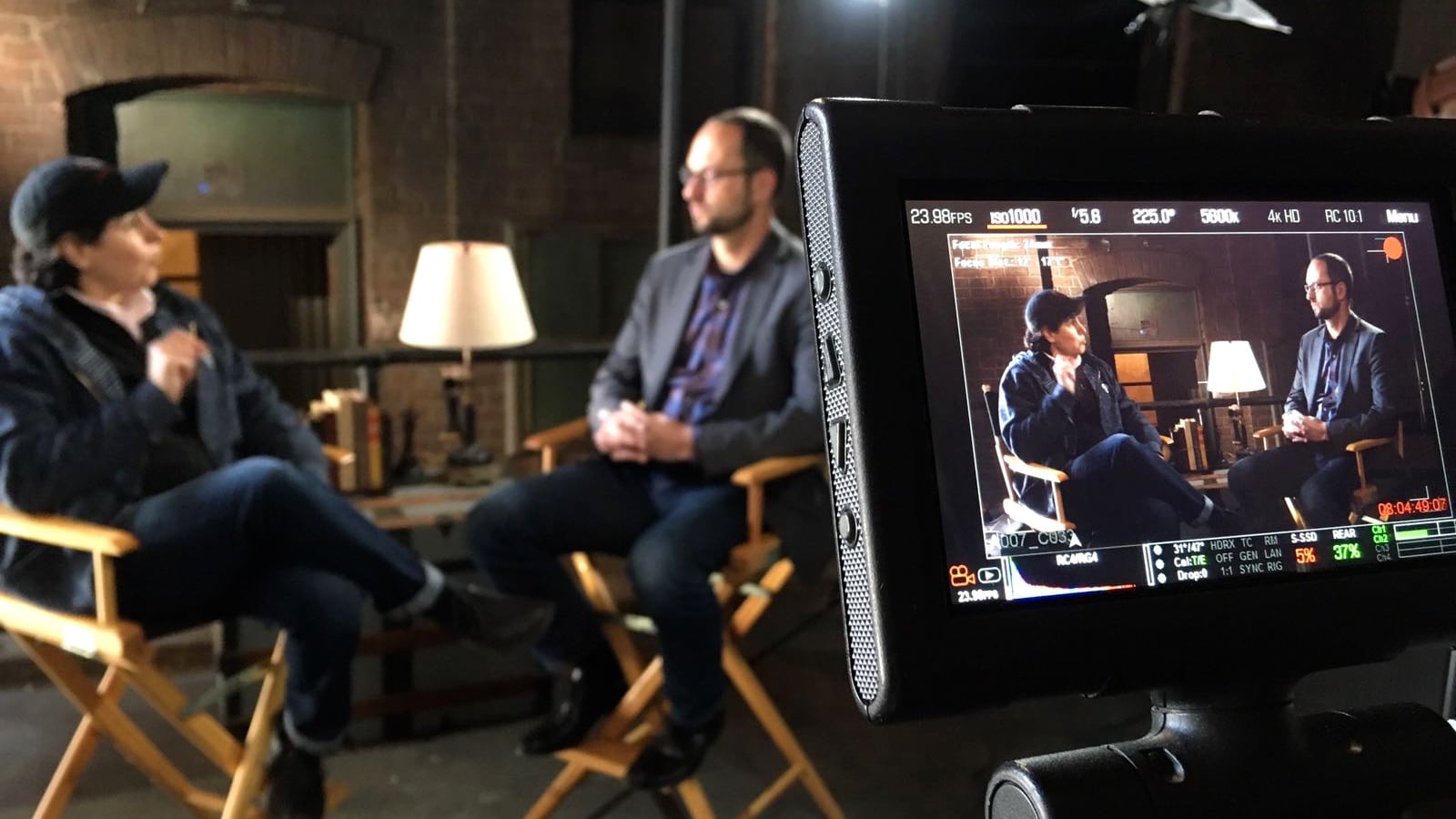
Nergis Mavalvala talks gravitational waves with storyteller Jonah Sachs
Some of the FutureFixers who have divulged their powers include the awesome Wonder Woman of STEM, the Robin Hood of currency exchange, the Godfather of modern sustainability and the smiley XPRIZE serial social entrepreneur who also happens to be a space buff, scuba diver and pilot.
We asked friends of the Atlas for a few of your favourite things. Prepare to raise a glass to the alt-phone sticking two fingers up to the iPhone X.
► Includes ‘good’ gift ideas, Bitcoin insider tips and ways to be useful.
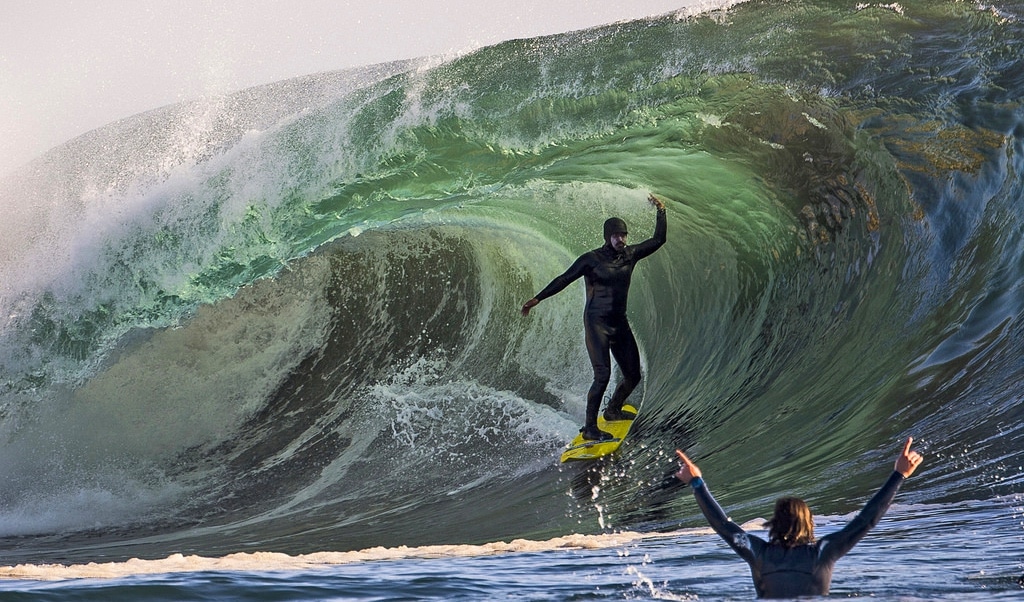
Surfers wave bye to nasty rubber wetsuits
Environmentally-conscious retailer Patagonia wants to save the world one neoprene-free, natural rubber wetsuit at a time. We’re big fans – not least because they’re suing the Trump administration. Watch what happened when we got to break the ice with their VP of Environmental Affairs – legendary conservationist Rick Ridgeway AKA ‘The real Indiana Jones’. He’s hardcore.
Why you love it: Ynzo van Zanten, Tony’s Chocolonely
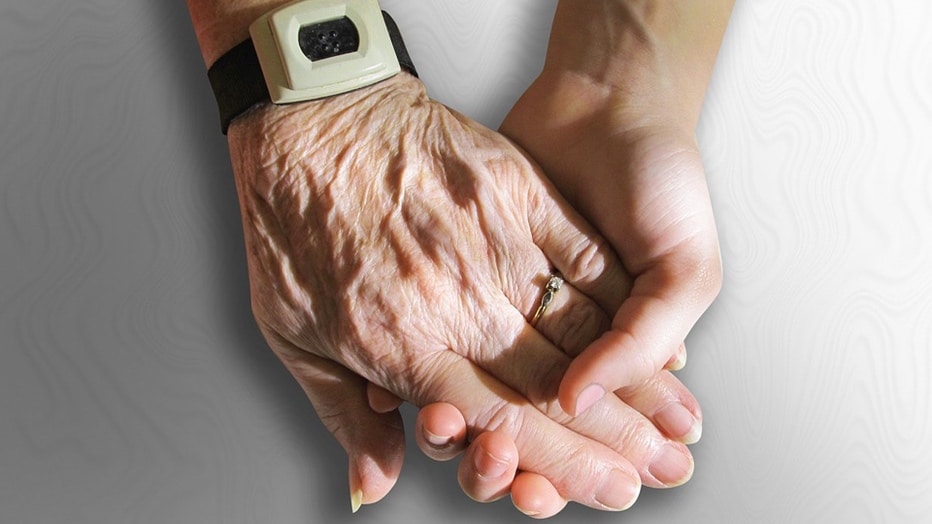
Wanted: 85-year-old flatmate
They say you can’t teach an old dog new tricks, but that’s not computed by the elder residents in this Dutch intergenerational retirement home that puts together the young and old. Anyone for beer pong?
Why you love it: Annette Mees, Artist/Creative Director

The Patagonian wool changing lives
Can wool change lives? It’s doing just that in Buenos Aires, where members of the Villa 31 slum-based knitting cooperative turn it into colourful clothing for knitwear brand Ursa. Two words: Christmas present.
Why you love it: Jessi Baker, Provenance
“Every garment Ursa produces tells a thousand stories, of the lives of women who make them and of the land that makes the wool. Brands like Ursa, who bring the human and physical journeys of products into hands of the people who wear them are the future, and those who also make it their mission to have a social impact, are the ones we want to see grow and succeed.”
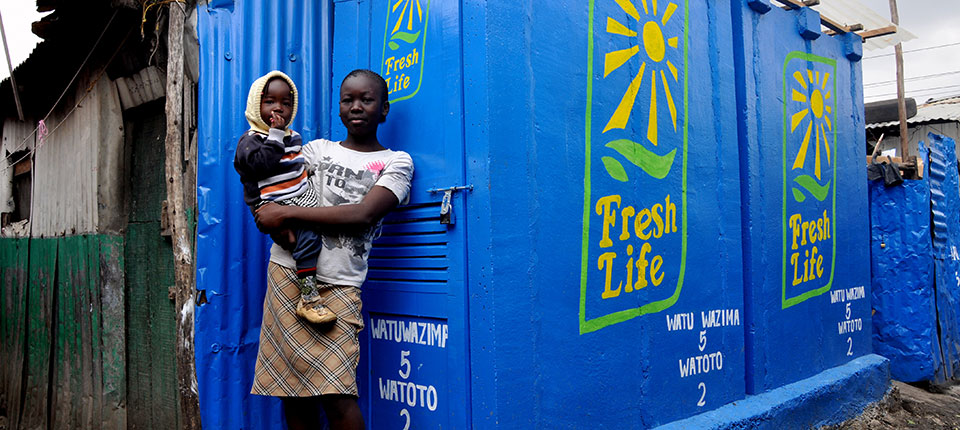
Digital toilets sanitise urban slums
Fresh Life Toilets are teaching the very business behind doing your business. Millions of slum dwellers don’t have access to the fundamental human right of good sanitation, so these ‘digital toilets’ are run by local micro-entrepreneurs, with waste separated to make organic fertiliser, instead of polluting waterways.
Why you love it: Kate Raworth, renegade economist
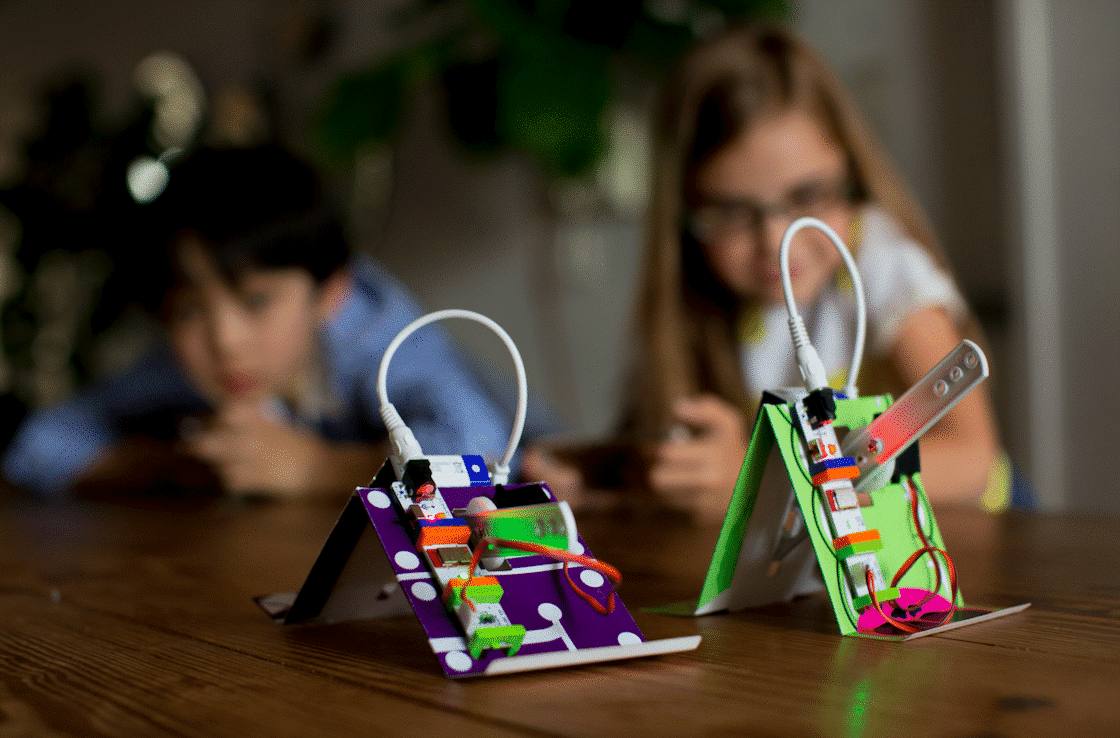
The new ‘Lego’ for lil inventors
Just as we are on a mission to ‘democratise the future’, littleBits is on a mission to ‘democratise hardware’ by empowering everyone to create inventions – with its innovative platform of easy-to-use electronic building blocks. Ayah Bdeir is the open source kit of engines, oscillators and batteries that snap together with magnets. We want a go.
Why you love it: The women of Sónar+D 2017
“Coding literacy is vital. Platforms like littleBits with their code kit and projects like Root, offer the necessary tools to get anyone programming no matter their age or computer background. Learn how to code no matter if you are 7 or 70!”
15. Forest Green Rovers, United Kingdom

The world’s first vegan football club
Eco-warrior and outspoken founder of the world’s first green energy company, Ecotricity, Dale Vince is on a mission to green up sport. His vegan football club Forest Green Rovers has an organic football pitch and eco-friendly stadium.
Why you love it: Ella Saltmarshe, The Comms Lab
“I love Dale’s Vince’s work to turn the beautiful game green. He’s turned Forest Green Rovers into the world’s first vegan football club promoting an ecological message that underpins everything, right down to the solar powered lawnmower that cuts the pitch. Culture is crucial to tackling climate change. Engaging people through the things they love on a local level is smart and strategic. Creating prototypes of the future is an important part of systems change. Vince is also providing a green beacon for other sports clubs to emulate, showing the industry what’s possible.”
14. Meaning Conference, United Kingdom

The festival with Meaning – and Mark Stevenson
Described as “The Glastonbury of business”, Meaning is an edgy conference held in Brighton that connects and inspires the people who believe in better business. This year we filmed it all, from set up to after-party. We’ll take you behind the scenes in the new year.
Why you love it: Mark Stevenson, Futurenaut
“I’m going to cheat. My favourite Atlas project is the Meaning Conference – which is like a live version of the Atlas for the business world. It’s a much needed meeting place and melting pot of ideas and people who understand that we can’t save the future without business on board. It demonstrates that a better future is possible. Being surrounded by 400 enlightened business people is a cynicism smasher. The calendar would be much duller without Meaning as annual beacon of pragmatic optimism.”

Sneakers 3D printed from plastic ocean waste
We are drug addicts, and you can’t go clean and sober overnight. Recycled plastic is the substitute drug. Proving that fashion and ethics can go hand in hand, Adidas have 3D printed a running shoe made from ocean plastic pollution.
Why you love it: Ed Gillespie, Futerra
“As a former marine biologist I’ve followed the escalating concern on ocean plastic pollution for a quarter of a century, and the prognosis to date has not been good. But products like Adidas Parley are part of the game change: end single use plastic; returnable or recyclable bottles; and turning plastic waste back into useful, valuable things like shoes. The emerging ‘closed-loop’ circular economy is critical for addressing not only resourcing and pollution challenges, but also relocalising economies and further blurring the lines between customer and producer. In the future anyone could be able to collect their own plastic waste, recycle it at their local DIY plastic recycling plant, then take the material and design and build their own shoes on a 3D printer… if they can be arsed!”
12. Provenance, United Kingdom
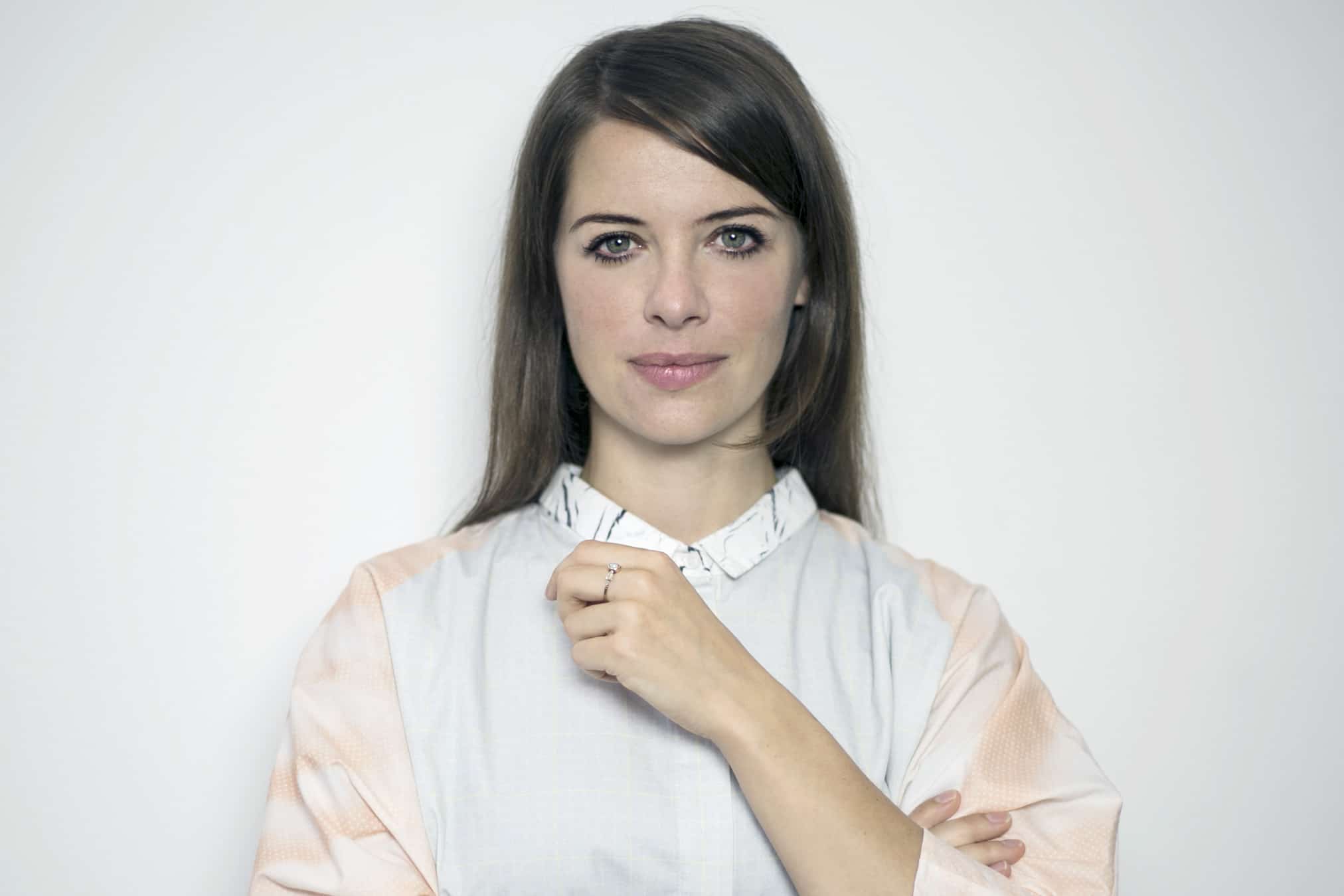
Welcome to radical transparency: every product has a story
Jessi Baker is the woman behind Provenance, a software company that uses novel technologies like the blockchain (a word that people throw around, but nobody understands) to help businesses share information about the people, places and materials involved in their products. It’s all about revolutionising trust.
Why you love it: Agamemnon Otero, Repowering
“In an era of ruptured capitalism, Provenance uses market mechanisms to fuse the system back together again. Using blockchain algorithms, consumers gain visibility of who, what and were things are made. This shows you the companies who emit negative social and environmental financial impacts.”
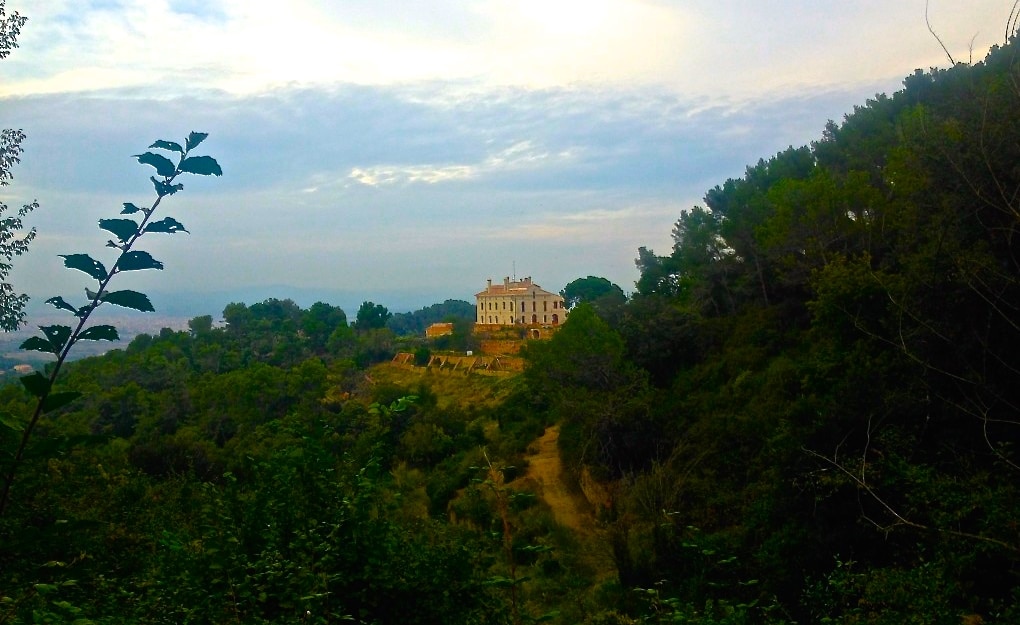
It’s a lab, but not as you know it
In a 12th century house in the hills outside of Barcelona, an exciting group are asking themselves how science and technology can serve society.
Why you love it: Dougie McMaster, Silo’s ‘Ethical Jedi Chef’
“I love the idea of different specialists coming together (like the Fellowship of the Ring) to defeat the most challenging of monsters. What’s crucial is that they have the necessary perspective, looking at the bigger picture and allowing that greater understanding to guide the next wave of practical design – for the digital revolution. The wonderfully alluring title ‘The place beyond the pines‘ captured my imagination as if it were a Quentin Tarantino movie with its off-the-wall approach, very inspiring! I love the content of Atlas. It’s smart, edgy, positive and without the unnecessary fluff.”
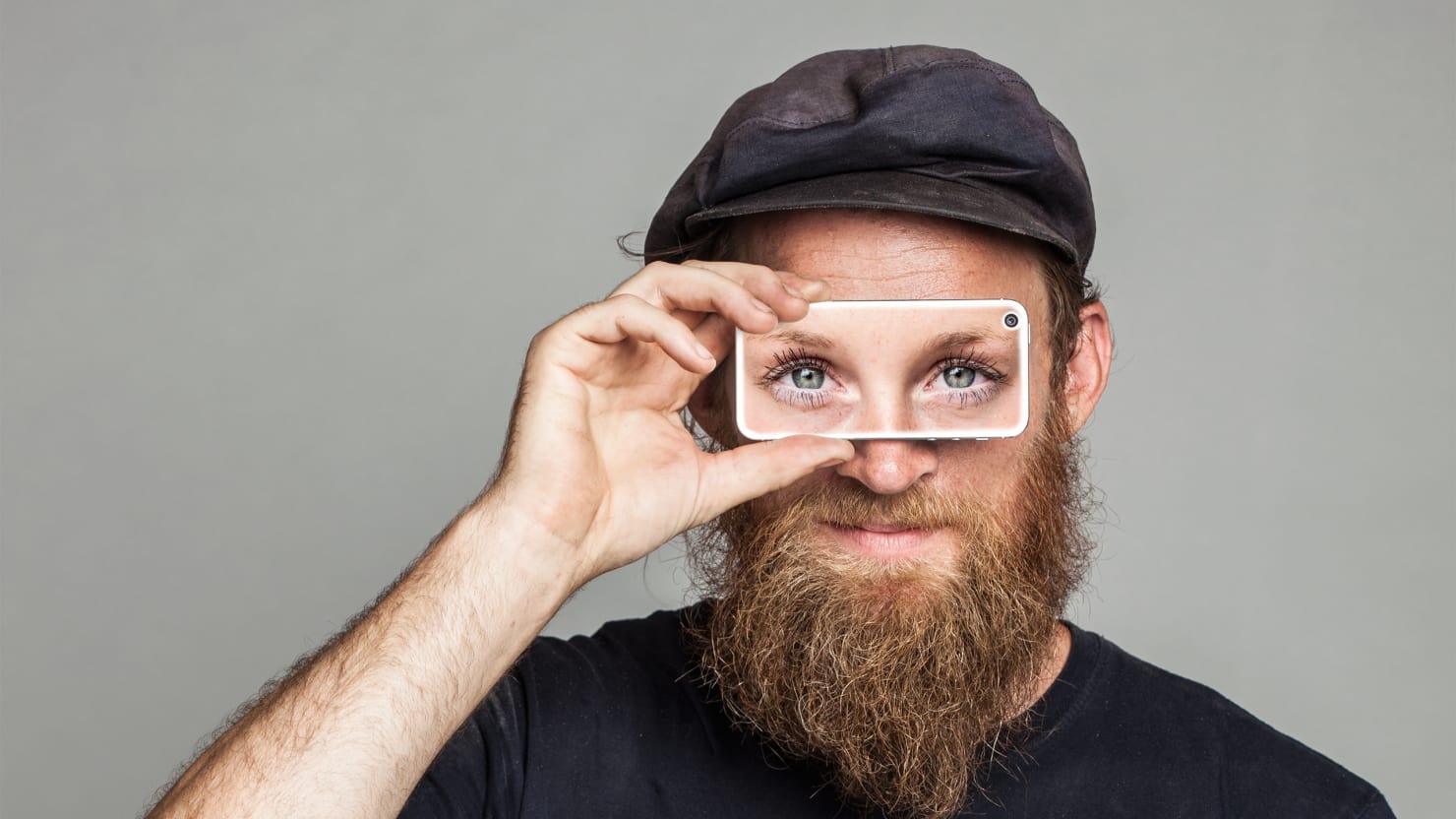
Use your phone to help people see
Some projects offer simple solutions and genuinely rewarding experiences in exchange for small amounts of time: Be My Eyes is a free mobile app that connects a community of half a million volunteers around the world to the blind and visually impaired and GoodGym is a community of runners that combines getting fit with doing good deeds.
Why you love it: Helen Brain, Be The Real Change
9. Aerial reforestation, Thailand
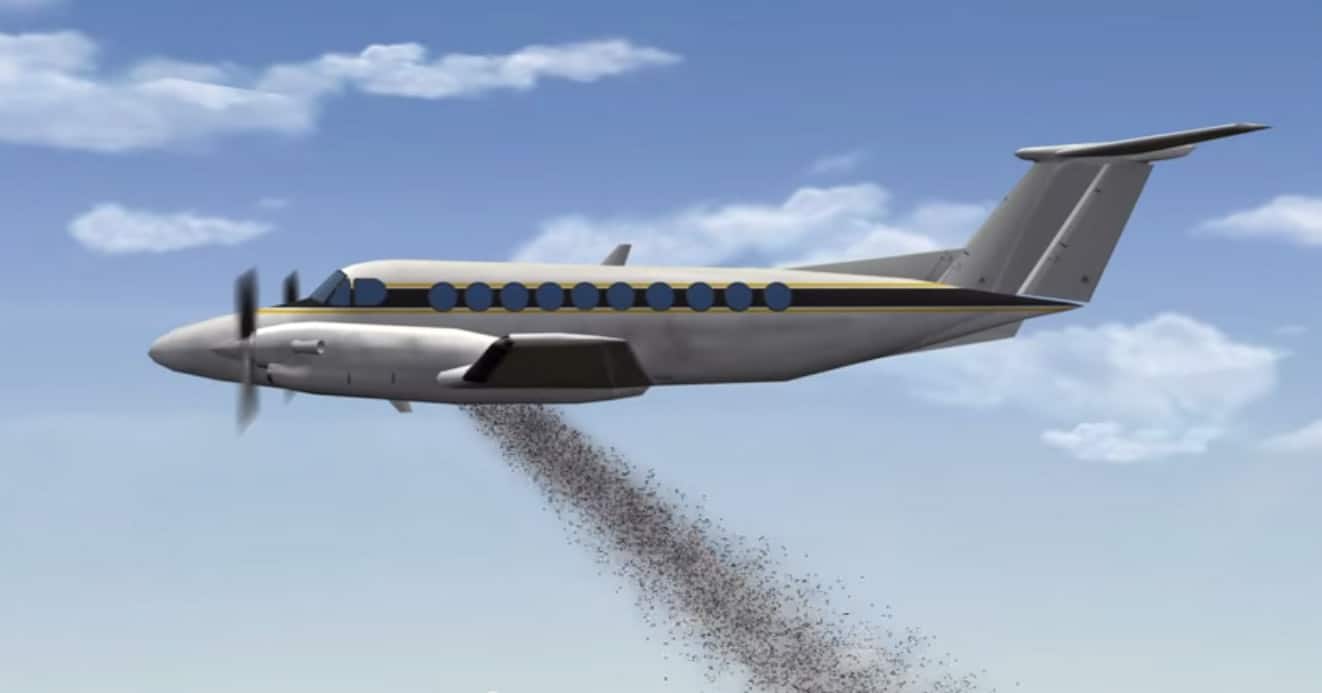
Drop seeds, not bombs
This project is the (seed) bomb! Thailand wants to transform its deteriorated forests into healthy green forests using aerial reforestation.
Why you love it: Vicente Guallart, former Chief Architect of Barcelona City Council
“This is an intelligent use of the technology of war applied to rebuild the green layers on earth. And it’s developed by the government! Often innovative projects from government are much more difficult than from independent organisations.”

Join the sweet liquid economy
This it is! This is how you build a resource based economy right inside the real world – by building a global value network using blockchain technology. Sweetbridge is using existing market capitalism but issuing credit to people doing supply chain businesses.
Why you love it: Vinay Gupta, Ethereum blockchain advisor
7. Atlas of the Future (yes, really)
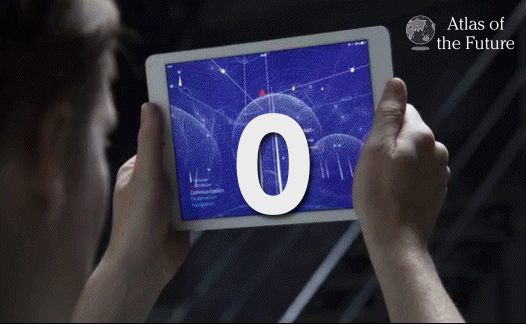
Your projects rock
As a small team we are humbled by the fact that some of you chose… us! The future is all about collaboration, so we’re excited for our 2018 storytelling project called CultureFutures with Goldsmiths University and the British Council’s Creative Economy team. Are you a creator focused on social change? Or a hub of art-ivists whose work benefits your community? Get submitting!
Why you love it: John Elkington, Chairman, Volans
“My favourite project on Atlas of the Future is the Atlas itself. Yes, it’s great to have some of our work flagged, but my favourite element of the site, apart from the playful titling, is the map of entries. It’s wonderful to have visual confirmation that we are part of a global uprising!”
Why you love it: Cassie Robinson, Doteveryone
“I’m slightly cheating with this answer but my favourite Atlas project is the Atlas itself! Whilst I want to champion and highlight all the brilliant projects featured on here, and the people who are making them happen, what I am most inspired by when I visit the Atlas platform is the collective story of all of them together. Sometimes single initiatives can be dismissed for being small or something happening in isolation, but when you see many of them together like this, they feel more like a powerful movement of change and hope that is sweeping across the planet.”
6. Simple artificial organs, United States
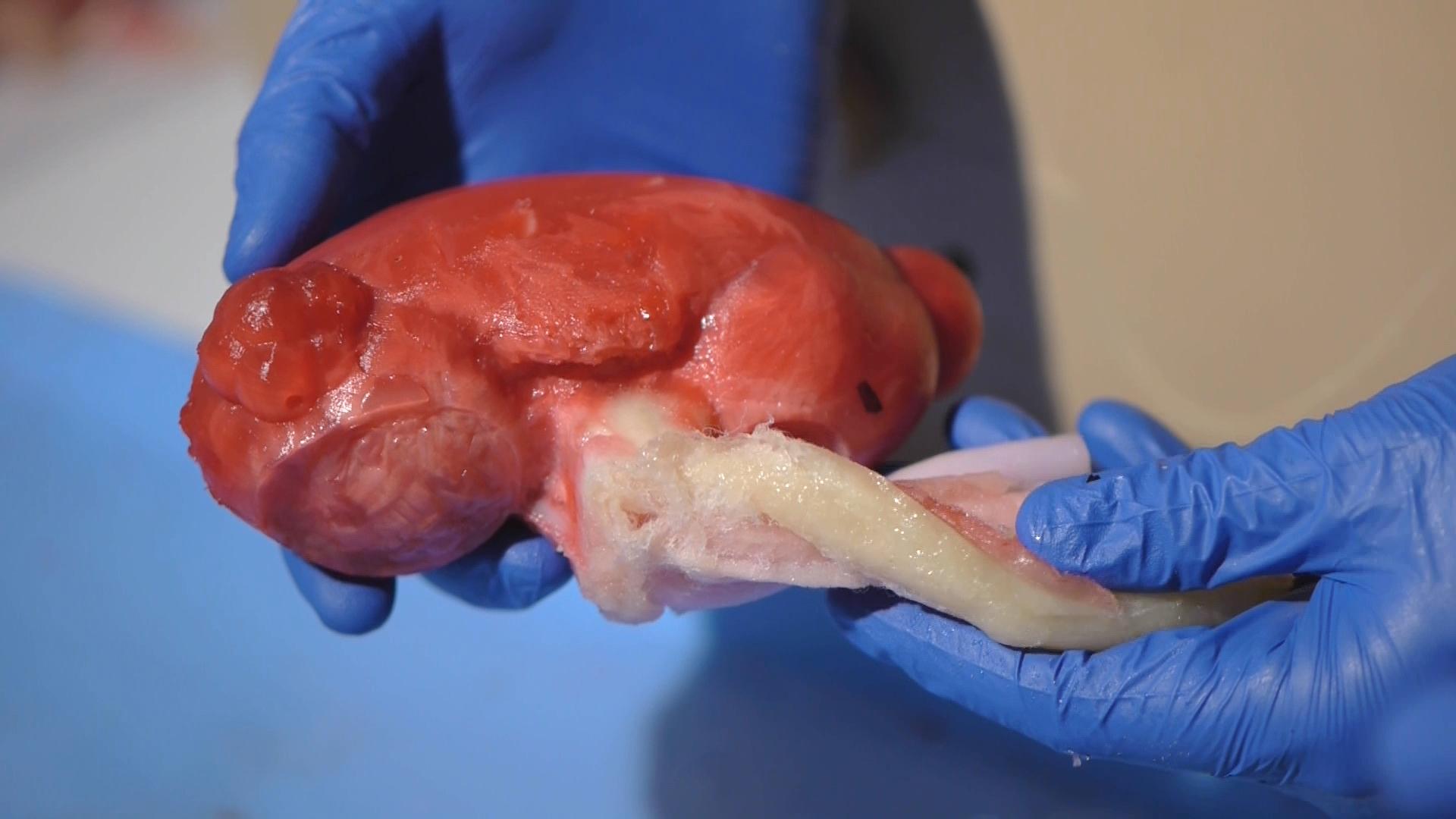
3D printed organs that ‘bleed’
In the same way that trainee pilots get flight simulators, now medical students get 3D printed artificial organs that can be poked, prodded and dissected. And they bleed.
Why you love it: Paul Armstrong, Here/Forth
“There have been so many great ideas and examples of work from new energy, clean water and connectivity initiatives but I really like the work of the folks at Rochester Medical Center University for creating simple artificial organs that can be used for training doctors. Pairing with biological materials research, the future of this technology is incredibly exciting. Their work has the potential to save millions of lives via a distributed system that – currently – has a huge supply and demand issue let alone the issues with before compatibility and rejection.”
5. Homeboy Recycling, United States
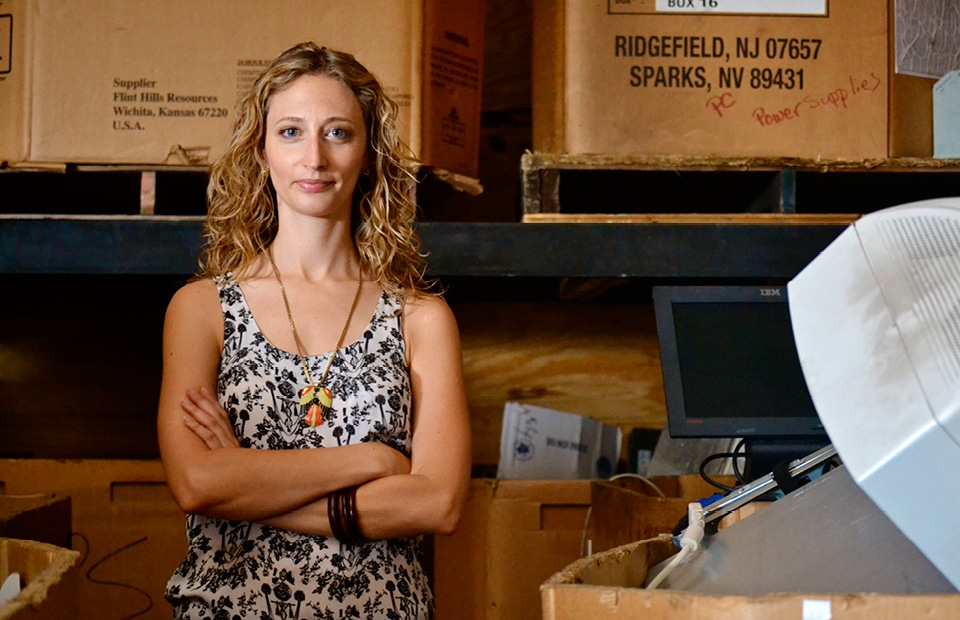
The Saint of E-waste
Kabira Stokes is on a mission to give a second chance to the things our society sees as disposable – ‘throwaway’ people and trash. Homeboy Recycling employs ex-inmates to break down electronics into base parts – picking out the abundant and highly valuable plastics, metals and fibres.
Why you love it: Matt Petersen, Los Angeles Cleantech Incubator
“Seeing the work of Kabira Stokes of Homeboy Recycling featured in the Atlas is exciting given their workforce is compromised of formerly incarcerated individuals, and they’ve created a social enterprise business from e-waste. Homeboy Recycling is one of LACI‘s woman-led portfolio companies and isa great success story on cleantech innovation and doing social good.”
4. Bitcoin

Is paper money really on the verge of disappearing?
Who would have thought at the start of 2017 that Bitcoin would increase 20-fold? Is paper money really on the verge of disappearing as people become their own banks? And will we ever know the identity of the real Mr Bitcoin, the mysterious Satoshi Nakamoto?
Why you love it: Tomás Diez, Fab Lab Barcelona
“For sure this will be remembered as the Bitcoin year. It is already shaking up the global economy and skyrocketing soon, apparently. As countries start to use cryptocurrencies we will see more and more applications of it, with blockchain decentralising and recovering the free Internet. If you want to buy some Coinbase is a bit more expensive but fast to create, Changelly is cool, but you need to setup a wallet first, I recommend Coinomi, Mycelium or Bitpay, in that order. Finally, Bitstamp or Binance are nice exchanges too, Bittrex is what a lot of people use and it is good to automate things, but requires full dedication.
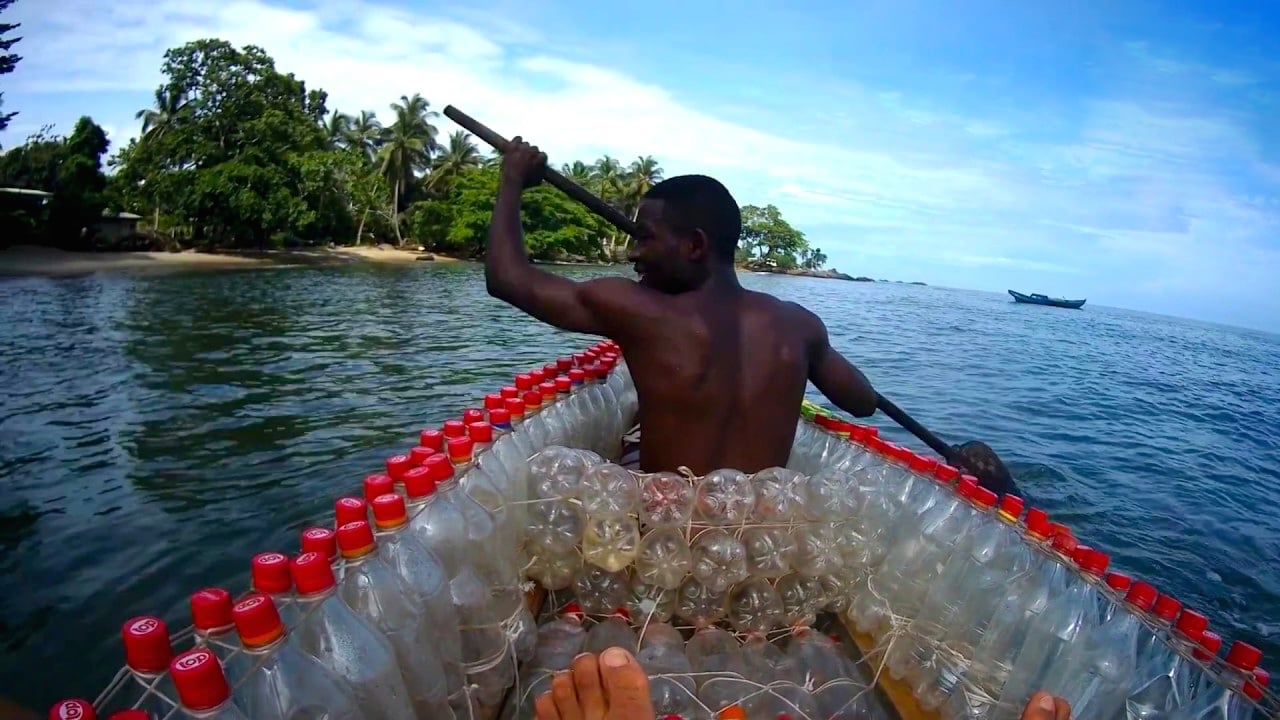
This bottle boat is not a toy
One highlight of this year was meeting Ismael Essome Ebone at GriGri Pixel in Madrid. Fishermen laughed when he first ventured out in his ‘ecoboat made from plastic waste’, but he braved the strong waves and currents without a lifejacket. And that shut them up. This is what a true FutureFixer looks like.
Why you love it: Cathy Runciman, Atlas of the Future
“It’s so hard to choose just one, but Ismael Essome’s fishing boat made from recycled plastic bottles gave me most joy this year. His work has so many positive aspects: great design and awesome utility, circular economy, upcycling, tackling waste and environmental degradation, boosting the local economy. And he makes more than boats from the bottles – he also creates furniture and even holiday homes, and his dream is to help vulnerable people in Africa make use of waste to build homes. I hope Atlas readers will support him in achieving those dreams.”

A good call
Few things are as wasteful as a mobile phone. Designed to be discarded, even the latest model can seem outdated before it’s out of the box. Fairphone uses fairer materials with lower social costs and an open source software design that allows people to develop tools for their mobile phones.
Why you love it: Kyra Maya Phillips, The Misfit Economy
1. Tony’s Chocolonely, Netherlands

The story of an unusual chocolate bar
When the chocolate industry turned a blind eye to slavery and said it would be impossible to create a transparent slave-free cocoa supply chain, Tony’s Chocoloney showed them up by building one. On top of that they did chocolate better in every other way – whilst having enormous fun. Businesses with a deep sense of purpose ‘baked-in’ from the word ‘go’ are really exciting. Smart. Sweet. More please.
Why you love it: Tom Tobia, Makerversity
“It’s impossible to pick a favourite from so many varied and incredible projects, but the one that’s making me feel warm and fuzzy this winter is Tony’s Chocolonely. I was first offered a piece of this ethical chocolate by a lifesaving Dutch couple this summer in the Wakhan Valley, Tajikistan when I was dealing with altitude and a sugar crash. They have now become firm friends (not just because of their choice of snacks). More importantly, back in Europe I’ve since bought quite a lot more because Tony does something most ethical products don’t – he makes a product of higher quality than anything else out there. It is insanely delicious.”
Want to be more useful in 2018? Find out why we have been called the ‘mapmaker of the future’ and submit your projects here. And don’t forget to spread the word about our weekly newsletter of joy. It’s a bit of an awesome beast. Have a good one and we’ll see you in 2018.
